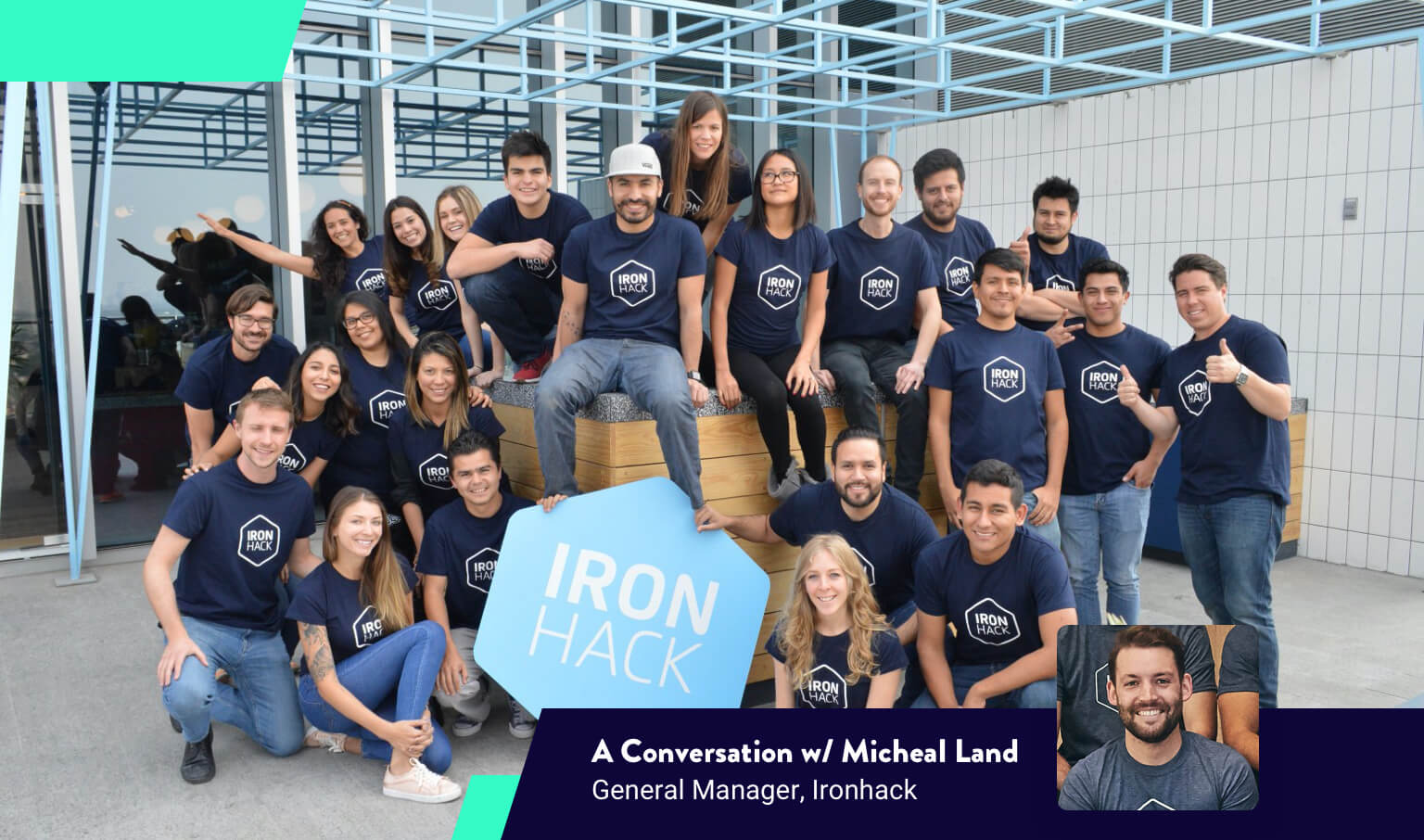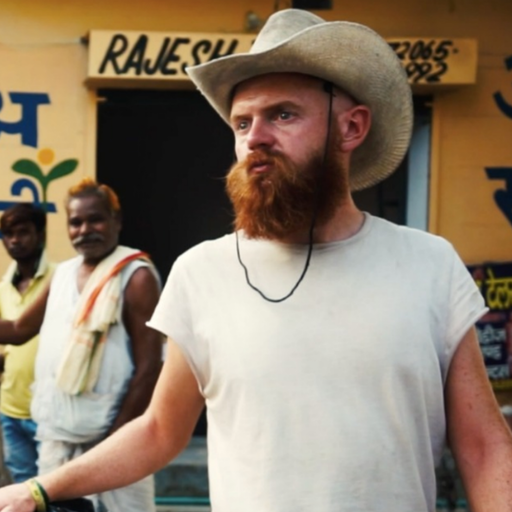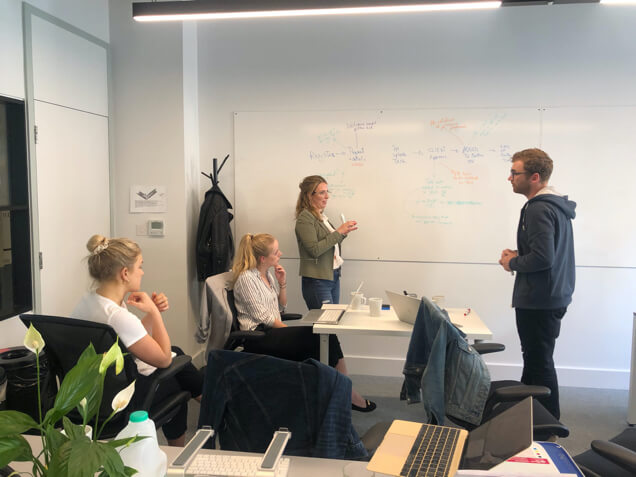How Ironhack transitioned their Coding Bootcamps to a remote environment in just two weeks

As one of the world’s highest-ranked coding and design schools, Ironhack has always been quick to embrace change. Helping students find careers in programming, UX/UI design, and data analytics, the school operates as a training conduit, with its graduates going on to pursue high-paid jobs, career upskilling, or launch startups themselves.
Currently, more than six thousand students have graduated from their nine campuses worldwide. Since qualifying, ‘Ironhackers’ have worked for Google, Twitter, Mango, Orange, Telefonia, and Visa.
In July 2019, the coding bootcamp raised $4 million in Series B funding to expand internationally. When COVID‑19 struck, they had to change course and pivoted their campus operation to a remote platform in only two weeks—transforming their coding bootcamps to a changing economy.
Going Remote in Two Weeks
Ironhack has campuses in Amsterdam, Barcelona, Berlin, Lisbon, Madrid, Mexico City, Miami, Paris, and Sao Paulo, so when the Great Lockdown began, they had to respond at breakneck speed.
“When the pandemic began. We had a decision to make as a company. How can we make the remote transition as efficient as possible, and implement a remote bootcamp in two weeks in nine campuses?” said Michael Land, General Manager at Ironhack Berlin.
“Fortunately, we’ve had this idea of running remote bootcamps for a while now, so long before the pandemic, we had a strategic roadmap in place, and we hit the ground running.”
Hacking Your Comfort Zone
Ironhack’s remote plans were already in motion, but having to overhaul your business model in two weeks was not easy. Not only was there logistical problems to overcome, but it created challenges for their brand identity as well:
“As part of our original bootcamps, we run mini-workshops, such as LinkedIn courses, and simulate mock interviews for students. We also often run technical interview challenges and bridge the gap with our hiring partners.
So we’re an in-person school really, and our comfort zone has always been one-to-one teaching and creating a vibrant community around our classes and alumni network,” said Michael.
Managing Cash Flow in Times of Crisis
While pivoting your business model during a global lockdown is not easy, there are much bigger challenges.
“When I look across my startup network, I see uncertainty and fear about what’s coming next. Everyone is asking how can businesses survive? It’s not just managing a dip in revenue - it’s about how can startups pay for their staff? How can they manage the next three to nine months if there’s no financial aid coming in for startups?” said Michael.
So with financial challenges ahead, Ironhack has been looking to recreate their team spirit remotely and grow as a company.
Adapting to Change in 2020
By pivoting to a remote model, growth opportunities have come about with new demographics registering for courses internationally. “With people working and studying from home for the foreseeable future, we’re forecasting that remote learning will continue, so that may bring in additional revenue.”
After going remote in March, their first-ever virtual hack show made its debut in May 2020 with all bootcamps likely to be remote until 2021. During this transition period, Ironhack’s courses and workshops will continually upgrade with new features, and Michael hopes they can launch a new B2B remote platform sometime next year.
Be Part of the Solution
Ironhack’s campus comeback won’t be without its challenges. It certainly won’t be a case of giving “students hand sanitizer and tissues, and going back to the old normal,” as there are capacity issues due to social distancing.
“In Berlin, we can currently teach thirty students, and if we have to reduce that further, it will have a huge impact on our revenue, so we’ll have to think carefully about social distancing measures.”
Also, if there’s a recession, it may become more difficult for coding schools to recruit students with firms less inclined to here. Michael is confident, however, that their business model will adapt: “We’re looking to provide alternative training solutions, so we can help all our students find new possibilities once they graduate.”
Ironhack’s campus comeback will follow the recommendations of public health experts and government authorities. Until then, Ironhack will continue to provide a world-class education to its students through their remote live learning environment. Even if course leaders can not jump onto a student’s keyboard, students will receive support in every boot camp through Ironhack’s interactive learning platform, breakout rooms, and recorded sessions.
Find Out More
Learn Web Development, Data Analytics & UX/UI Design | Ironhack
View now

